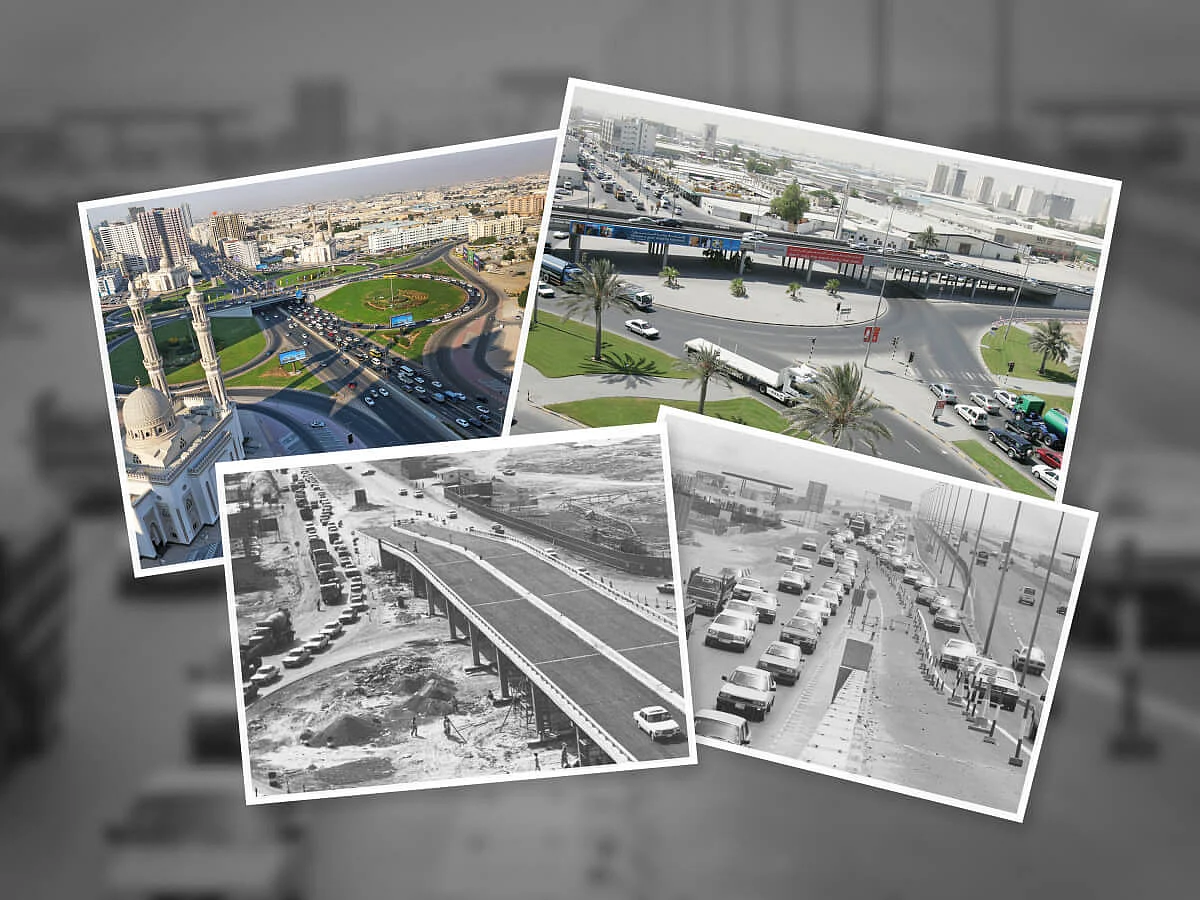Sharjah’s Al Khan Bridge – A journey of change, 1978–2025
In 2005, Al Khan Bridge turned four-leaf clover, renamed Khulafa Ar Rashideen Interchange

When Gulf News first reported on October 5, 1978, that the Al Khan Bridge would open to traffic on December 2 of that year, few could have imagined the transformation it would witness over the following decades. The road project that also included new roads around the Blue Souq on Khalid Lagoon, the bridge quickly became a vital link in Sharjah’s growing transport network.
As traffic swelled with the emirate’s rapid urban growth, Al Khan Bridge underwent a dramatic upgrade. In 2005, it was converted into a four-leaf clover interchange, renamed the Khulafa Ar Rashideen Interchange. Costing Dh33 million, the project widened the lanes to six—three on each side—and provided smoother access to key arteries like Jamal Abdul Nasser Street and Sharjah’s industrial areas.
By 2024, the junction took on a new cultural and spiritual dimension. Four mosques were built at the site, each named after Islam’s four caliphs—Abu Bakr Al Siddiq, Omar bin Al Khattab, Othman bin Affan, and Ali bin Abi Talib. Featuring 60-metre high minarets, four domes, and identical traditional Islamic designs, the mosques offer an impressive aerial spectacle. Each occupies 400 square metres and can accommodate 1,300 worshippers, serving both nearby residents and motorists travelling between Sharjah, Dubai, and Ajman.
Surrounded today by residential towers and busy highways, the square, once known simply as Al Khan Bridge, now symbolises both continuity and change. From a single crossing in 1978 to a modern interchange crowned by four gleaming mosques in 2025, the site reflects Sharjah’s journey: a city balancing heritage, culture, and faith with the demands of modern urban life.
Network Links
GN StoreDownload our app
© Al Nisr Publishing LLC 2026. All rights reserved.